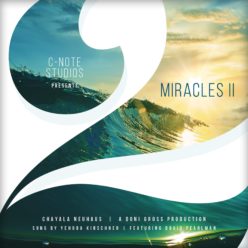In Record Time


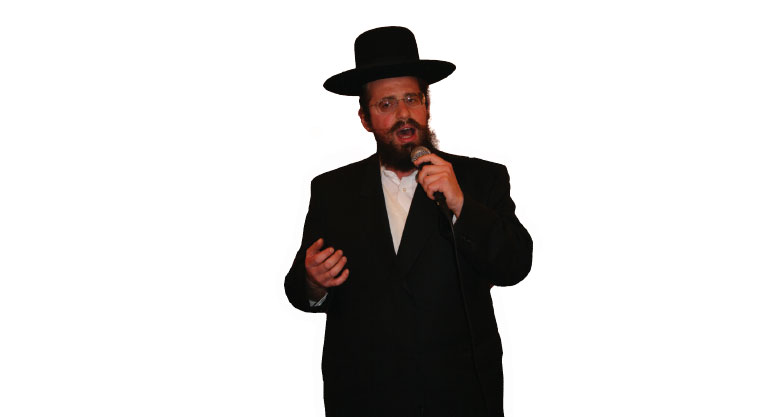

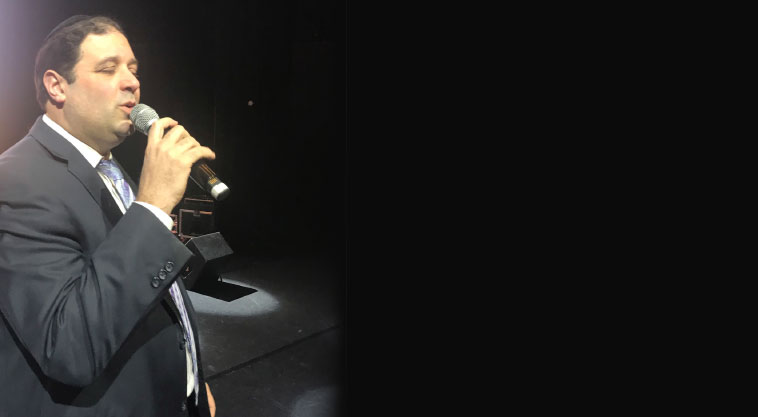
Vocalist and chazzan Shea Rubenstein has a passion for helping the dwindling number of remaining Holocaust survivors. That passion has taken him on a Yiddish musical journey that he hopes will bring comforting, familiar music to the elderly and introduce young people to classic melodies of yesteryear.
“It began at a Holocaust Survivors Appreciation lunch at the JCC last year,” Rubenstein says. “Instead of welcoming the participants with a speech, I sang them some songs in Yiddish, their mother tongue. People loved the music, and I thought of creating an album of prewar Yiddish songs, which would be distributed free to Holocaust survivors through social service organizations, and additionally marketed in-store and on digital music forums in order to aid survivors’ projects.”
The album, called Shirei Hapleita, features a collection of nostalgic, heimish Yiddish favorites, from Rubenstein’s personal top-pick, the upbeat “Mizmor Shir” — “lomir zingen shir leyom haShabbos” to “Lecha Dodi” with Yiddish lyrics and the heartrending “Galus, galus vi lang bist di, Shechinah hakedoshah vi veit bist di?” All but one of the composers of these songs were killed in the Holocaust, but their voices, says Rubenstein, have not been silenced.
Shea Rubenstein is a clean-shaven real-estate developer who founded the Jewish Community Council of Marine Park, Brooklyn, where he lives — but he prides himself on his fluent Polish Yiddish. “I grew up in the Bronx, but my parents, particularly my mother, were keen on Yiddish, and my zeide was a Tchortkover chassid. We had a Yiddish zemiros book, which was the source and inspiration for many of these songs.”
For listeners who are not familiar with these old-world songs, the CD comes with a songbook, including all lyrics both transliterated and translated into English.
Linking the release of the Shirei Hapleita album to the 80th year anniversary of Kristallnacht, Rubenstein invited 200 Holocaust survivors to a launch event at the Museum of Jewish Heritage, where they could all sit together enjoying the music of their youth.
(Originally featured in Mishpacha, Issue 741)
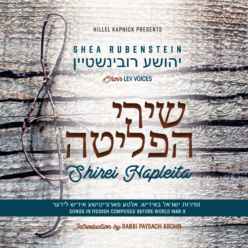
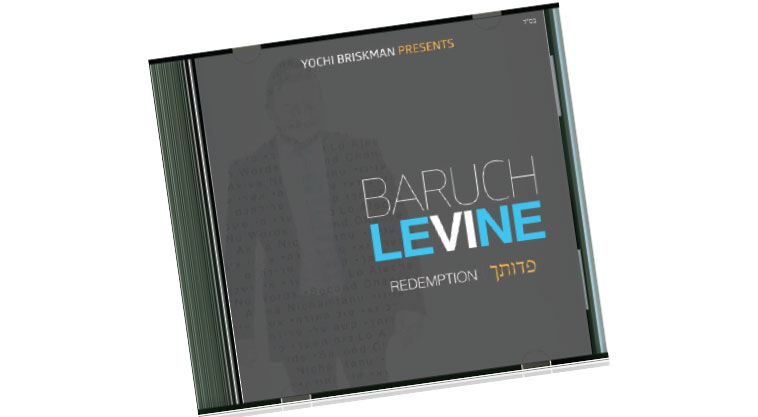
Just Out: New Releases, Fresh Takes
Baruch Levine’s English-language album, Touched by a Niggun, is almost ten years old. It’s still selling, though, and fans have been requesting an encore. Producing another full-length English album wasn’t on his agenda at this time, but with PEDUSCHA, released this Chanukah, Levine has hit a winning combination by including four inspiring English songs within the shirei kodesh. All the English lyrics are by Mrs. Ruchie Torgow, who gained acclaim for the English version of “Veharev Na,” composed by Levine for the 2017 siyum of V’haarev Na, a Torah movement that gives bochurim a love of Gemara learning through their encompassing chazarah program. The “Veharev Na” niggun on this album, sung together with Benny Friedman, was composed for the organization’s 2018 simchas haTorah (both versions are accompanied by inspirational videos).
The English songs on Peduscha, while all have a poignant message, vary in style. Track 2, “Akiva Nichamtanu,” is an emotional ode to the famous comfort offered by Rabi Akiva on viewing the ruins of the Beis Hamikdash, who explained to his colleagues that just as the destruction was the fulfilment of Hashem’s word, so the promise of rebirth would be fulfilled: “…And though we’ve cried so many tears, we are comforted by you/ Akiva, Akiva nichamtanu.”
Levine says its message is very much for our times. “In decades gone by we went through a tekufah of mourning and memorial songs, “Ani Maamin” and “Yizkor” and the like, and we are now in the next era, an era of hope. Although there is still so much pain, we need to be reminded that we’re living in a time that’s the precursor to Geulah.”
Striking a completely different note, with a lighter feel reminiscent of the iconic Journeys albums, is “Lo Alecha,” on which Eli Schwebel gives a stirring guest appearance. The song offers a few fun scenarios that reflect the Pirkei Avos adage “the work is not yours to finish, but neither are you free to absolve yourself of it.” Levine says he was excited to have such a song on his album, as it reflects a message he’s heard often from his rebbi, Rabbi Yosef Elefant: “A person can’t shteig with an all-or-nothing attitude.”
Performing at the V’haarev Na siyum last year, Baruch Levine was seated next to Rabbi Chaim Nosson “Nate” Segal, who suggested that he play “Lo Alecha Hamelachah Ligmor,” a popular song from the 1970s and ’80s. Most of today’s teens wouldn’t be familiar with that version, but Levine felt it was time to update this message of personal effort and bring it to 2018. After composing the upbeat chorus one Shabbos, he was stuck for words to make up the song’s stanzas, until he thought of presenting the concept in English — and then the ideas just flowed.
The album even includes one song composed way back before “Vezakeini” made Baruch Levine a household name. “I once wrote a song called ‘No Words,’ a tribute to our parents for their milestone anniversaries, and my wife wrote the lyrics. The idea is that we can never do enough to repay them, but we pay our debt forward, toward our own children. When Yochi Briskman came over to work on songs for this album, he found this song and liked it.”
With lyrics rewritten by Ruchie Torgow, the song describes a young couple walking down the aisle accompanied by their parents, then segues to 25 years later, as the couple escorts their own children to the chuppah and realizes anew what their parents did for them — “all we can promise, all we can do / is give to our children what we got from you.” Once again, with a soft, musical touch, Rabbi Levine does what he does best — opens our eyes and hearts to a stirring of sincere feeling, this time, gratitude for our parents who gave us everything, beginning with our very lives. (Originally featured in Mishpacha, Issue 740)
a
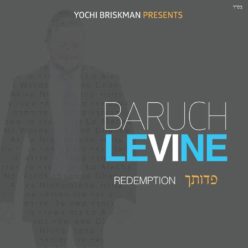

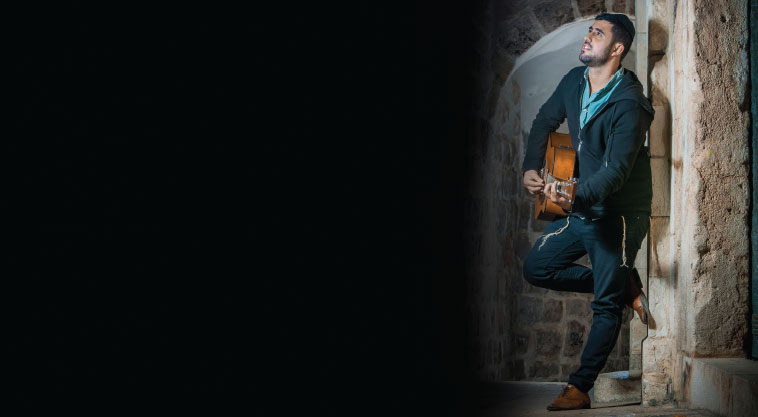
At age 18, French-born Ishay Ribo learned to play guitar and just knew he wanted to be a professional singer and songwriter. “But,” he admits, “I had no idea how this would happen. I had no connections, not enough musical knowledge, and had never even studied music — I wasn’t part of the industry at all.”
Still, he’d been composing simple tunes and lyrics since age 12. “I was a bit of a wild kid and writing songs would calm me down,” says the almost 30-year-old father of two, who lives in Jerusalem today, with four successful Israeli spiritual pop-style albums to his credit.
It was a winding path, but Ishay says he felt bountiful siyata d’Shmaya all along the way.
Even after the release of his debut album and single Tocho Ratzuf Ahavah in 2012, the future remained uncertain. The song wasn’t an instant hit — it would take time before he was “discovered.” Ishay then released another single off the album, but that was even less successful and his money was running out. “I didn’t know how to go any further. I was a religious married man, starting a family, with all the related expenses, and I needed to start making something back,” he recalls.
While Ishay was weighing the wisdom and feasibility of releasing another song, he received a call from secular Israeli singer and songwriter Idan Reichel. “Idan had heard ‘Tocho Ratzuf Ahava’ and was inviting me to sing on his album, The Idan Reichel Project. This was exactly the opportunity I needed. But I had made a kabbalah to sing only songs connected to emunah, bitachon, and the Borei Olam.”
Ribo told Reichel about his condition, and added, “Don’t even bother sending me a song if it’s not suitable. I don’t want to be tempted.” Reichel wasn’t fazed. “Good that you’re telling me. I have a spiritual song, perfect for you. I’m sending it.” The song, entitled “Or Kazeh,” gave Ishay strength to continue along his career path. “Not because it succeeded — but because the entire incident gave me hope. Here I was at my low point, and suddenly I’d been given a stage.”
Today, Ishay Ribo has managed to break down sectarian barriers by mixing spiritual influences with inspirational melodies. His concerts attract capacity crowds from the entire spectrum of Israeli society, he has won prestigious music awards, and he still only wants to sing about the Borei Olam. “Music is a great connector,” he reflects. “Not-yet-religious people come and feel their souls stirred. People have told me, ‘I’m not religious, but I won’t listen to your songs on Shabbat.’” (Originally featured in Mishpacha, Issue 740)
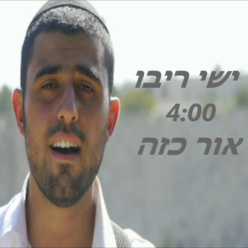
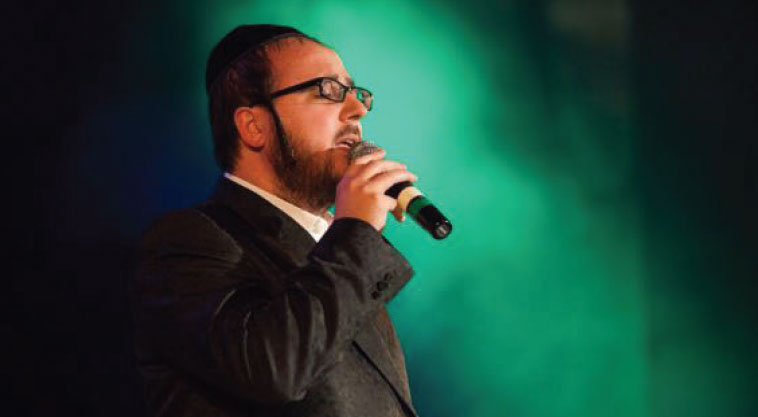
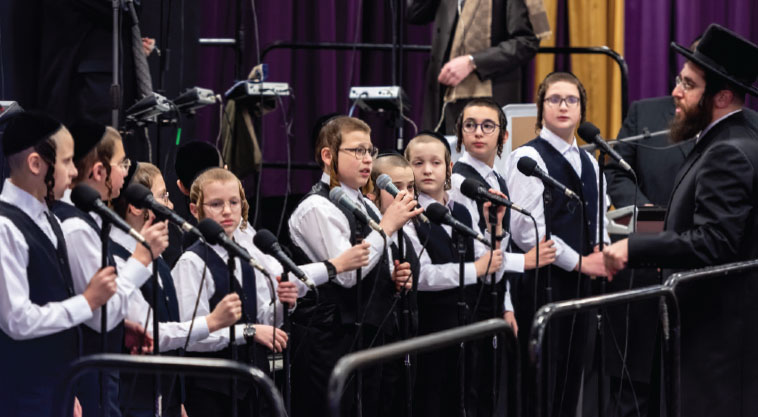
Camp Shalva, the Bobov boys’ camp based in Parksville, NY, was put on the Jewish music map over three decades ago through the enduring compositions of Reb Moshe Goldman. Now it’s in the news again, as Shalva’s head counselor, Reb Shea Rosen of Flatbush — talented instrumentalist and natural storyteller — has put together a new boys’ choir extending far beyond his summer job and Chol Hamoed programs: He wants the boys to have a completely kosher musical outlet all year round.
When Rabbi Rosen bumped into producer Naftali Schnitzler last Purim, things began to move, and fast. “I, like Reb Shea, loved the idea that every yingele who loves music should have the opportunity to sing in a choir,” says Schnitzler, who agreed to produce a professional album for Rosen’s choir, the newly formed “Yingerlich.”
Asked to write songs for a choir of young, earnest voices, composer Hershy Weinberger sat down at the piano. “In just a few hours, he managed to create six songs,” Schnitzler recalls. This marathon was rewarded when four of those new melodies made in onto the YINGERLICH album — including the opening hit “Davenen” (“Mi anochi she’ezkeh — Who am I that I should merit to daven in front of Hakadosh Baruch Hu?”) and “Veyitein Lecha.” “Davenen” debuted at camp kumzitzes this past summer; in fact, the last vocals on the track were recorded live at a camp performance.
Naftali Schnitzler had his heart set on the children singing a new and poignant niggun for “Achas Shoalti,” but when he approached Reb Pinky Weber with the idea, the composer was dubious.
“Who needs another ‘Achas Shoalti’?” he said. “There are already so many of them out there.”
“Yes,” said Schnitzler, “but none by Pinky Weber.”
The resulting song is one of the album’s highlights, and the choir has already received requests to sing the tune at chuppahs, to the words of “Mi Adir.”
While the song list was under discussion, Yossi Kalisch —younger brother of Reb Eliezer Kalisch, the Belz composer from Bnei Brak — sent Schnitzler a song which was a good fit for the album’s heimish feel. Another contributor is composer Reb Meshulem Greenberger, a Dushinsky chassid from Jerusalem. Fans of Greenberger’s simple and direct musical style will certainly enjoy “Meloich” with its catchy and hope-inducing Yiddish lyrics (“zol shoin zein…bimheira beyameinu omein”). “Actually, Arele Samet wanted the song,” Schnitzler confides about the track he chose as the album’s finale.
Two weeks after the album was on the shelves, it had almost disappeared. “I got a call from the distributor—there are practically no copies left in Boro Park, Williamsburg, Monroe, and Monsey. We had to produce more CDs.”
But Schnitzler really isn’t surprised by the run on the album. “In my view,” he says, “every Yiddishe kid is essentially a part of Yingerlach.”
(Originally featured in Mishpacha, Issue 739)
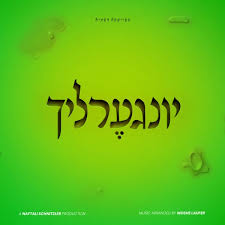
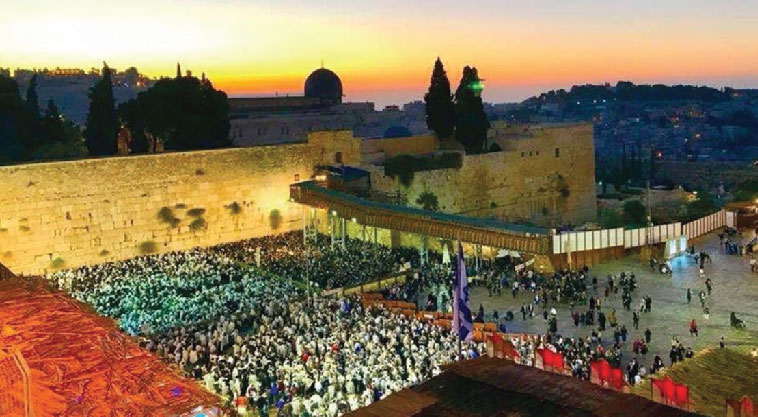
Benny Friedman’s new single “Vesechezena” — off his soon-to-be released fifth studio album — was chosen for the early release this past Tishrei, when both Benny and his producer Sruly Meyer were in Eretz Yisrael. “It’s a beautiful song, but we hadn’t yet chosen a title for it. Then, right before Yom Kippur came the tragic stabbing of Ari Fuld Hashem yikom damo, and everyone in Israel felt shock and pain. Toward the end of Succos, Benny and I were together with Yitzy Berry and Eli Klein in Reb Shlomo Yehuda Rechnitz’s succah in the Old City overlooking the Kosel, playing for some guests. We decided to sample this new song in the succah, and it just felt so right. Once we returned to America and started working on a single cover, we both knew the art would be of the Kosel — and what better name than “Vesechezena.” I sent Benny a bunch of photos I took my last morning in Jerusalem — at sunrise by the Kosel — and it reminded Benny of a photo he saw posted by Ari Fuld on Hoshana Rabbah 5778, exactly a year before he was stabbed to death. It captured the song’s essence perfectly. We asked for permission from Ari’s family, and they were very excited to be able to allow us to use Ari’s incredible photo to give a visual to this song, which speaks of our yearning for the final redemption and for all of Klal Yisrael to return to Tzion. May Ari’s merit watch over us and protect us until Mashiach is finally here and we can live, once and for all in peace, in Eretz Yisrael.” (Originally featured in Mishpacha, Issue 739)
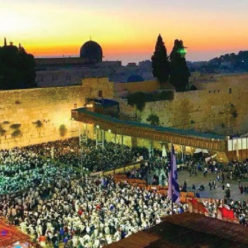
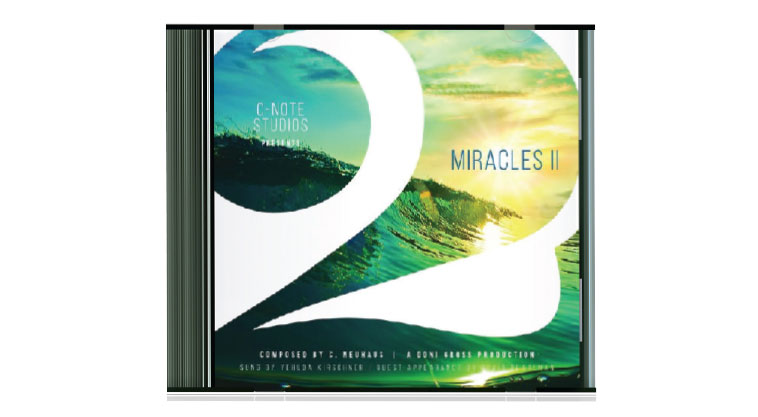
The lyrics of Chayala Neuhaus’s song “Holding Back the Tide,” just released on her second album Miracles II, are comforting on so many levels.
“Haomer layam ad poh savo / For The Master who rules the sea has willed it so / For despite their rushing strides Hashem alone presides / Yes He is there and He’s holding back the tides / No mighty wind or waves of roaring thunder / Can ever be strong enough to pull me under.”
Mrs. Neuhaus wrote the song in thanks for her husband’s recovery from an injury. “My husband fractured his spine and was immobilized for a while. One day we drove to the ocean and watched the thrashing waves, and he told me the words of the Medrash on the pasuk in Iyov, ‘Veomar ad po savo,’ that the mighty waters should really overwhelm the land, but HaKadosh Baruch Hu says ‘Ad po, you can’t go any further.’ The sands may look soft but Hashem’s word is an iron barrier. Every wave breaks upon the shore. My song celebrates this and relates the concept to all those trials which accost us in life. Hashem limits them — they cannot drown us.”
Like innumerable Jewish musicians today, Mrs. Neuhaus can trace the blossoming of her inborn musical ability and beginnings of her artistic journey to the hothouse of talent in summer camp. “I attended Camp Bnos for many years. There, Dina Storch proved that Jewish women could write songs, and Rebbetzin Shonnie Perr decided that I could do things that I didn’t believe I could.” One summer, when Chaya was 11 years old, Rebbetzin Perr called her up. Dina wasn’t available to play the camp song — could she step in?
Chayala describes the process of putting out her first album, Miracles, in 2015, as “scary.” My songs had mostly been enjoyed by female audiences up to that point. Taking the leap to bring them to the wider world was a big risk—I didn’t know if it would be marketable.” But Miracles, with her compositions sung by child vocalists Dovid Pearlman and guest David Lowy, was indeed a hit. And this Chanukah, with the release of sequel Miracles II, everyone — not just girls in camp — can again be inspired by contemporary compositions about the miracles we experience every day. (Originally featured in Mishpacha, Issue 739)
